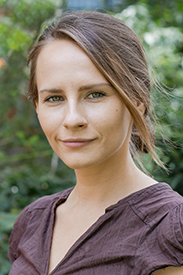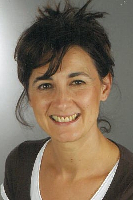Purpose
The Baden-Württemberg Certificate for Teaching and Learning at University Level (Ba-Wü-Certificate) is based on an association of the nine state universities and the colleges of education in Baden-Württemberg. The goal is to further develop the teaching skills of lecturers at all participating colleges and universities and to provide participants with professional support in their teaching activities during the nearly two years of continuing education. After successful completion of three consecutive modules, the lecturers receive the official Certificate for Teaching and Learning at University Level of the Ministry of Science, Research and Arts of Baden-Württemberg.
Target group
The program is aimed at all lecturers of the KIT.
Program overview
The certificate program consists of three modules and concludes with the award of the Ba-Wü certificate. As an alternative to the classical Ba-Wü-Certificate, the certificate with focus on e-learning can be acquired:
Module I: Basics of teaching and learning
Fit for teaching
This four-day workshop (2 x 2 days) focuses on the basics of didactic action in university teaching. The participants acquire didactic-methodical knowledge about the interaction of teaching and learning. Among other things, they deal with the questions of which conditions teaching/learning processes are subject to and how these can be designed to meet the demands of student- and activity-oriented teaching. Fit for Teaching is offered several times a year and can only be taken at the home university. Registration is done via the program page of the Baden-Württemberg Centre for Teaching and Learning (HDZ).
Peer coaching session
The peer coaching session provides an individual discussion of cases and problems and enables the development of own strategies for the personal teaching practice. The contents, which have been compiled in the course of the certificate program, are used for the development of solutions through reflection and counseling sessions, using discussion and group work. Prerequisite for participation is the completion of "Fit for teaching 1".
Collegial teaching observation
In the collegial teaching observation, two participants of the certificate program usually form a tandem that observes each other in real teaching situations (e.g. lectures) and gives feedback related to teaching behavior. The tandem prepares and conducts the peer teaching observation independently. Further information on preparation and implementation can be found in the Guidelines for Collegial Teaching Observation in the download area.
Didactic reflection
The didactic reflection (also called Module I reflection) forms the conclusion of Module I and serves to reflect on one's own teaching and teaching competence(s). The focus is in particular on the further development of one's own teaching personality as well as the influence of the various Module I components on this development process. Further information can be found in the guidelines for didactic reflection in the download area.
Module II: Deepening of different topics
Within the framework of Module II, various courses in higher education didactics are offered. Module II is considered completed when courses amounting to at least 60 units from 4 of 7 subject areas have been completed. The seven subject areas are:
- Teaching and learning under changing conditions.
- Alternative forms of teaching and learning
- Planning and preparing courses
- Conducting courses
- Evaluating courses
- Advise students
- Examine students
Any number of courses can be taken at all universities and colleges of education within Baden-Württemberg. The current course offerings can be found on the HDZ program page. For the Ba-Wü-Certificate with a focus on e-learning, at least 32 units must be covered by e-learning related workshops in Module II. These are marked with ![]() in the program overview.
in the program overview.
Module III: Individual profile building
Module III consultation
The Baden-Württemberg Centre for Teaching and Learning supports the participants of the certificate program in determining their individual focus for Module III and at the same time offers the opportunity to jointly reflect on the previous certificate process as well as the further development of personal teaching competencies. Module III cannot be started without participation in a Module III consultation. If work has already been done for Module III prior to the Module III consultation, in the worst case these cannot be recognized. Please make an appointment for Module III counseling via dfn-Terminplaner.
Individual focus
The individual focus (also called Module III thesis) consists of an independent piece of work in the context of university teaching. For example, it is possible to redesign a course or a series of courses, to develop a product for teaching and/or to contribute to the further development of a study program. For more information on the individual focus, please refer to the Module III Guide in our download area.
Final reflection
The written final reflection is the last assignment to be completed as part of the certificate. It is used to reflect on the entire certificate process as well as your own teaching and teaching skills. Further information on the final reflection can be found in the corresponding guide in our download area.
Certificate award event
Baden-Württemberg Certificate for Teaching and Learning at University Level is awarded once a year by our Vice-President for Higher Education and Academic Affairs. In the course of the award ceremony, the graduates also have the opportunity to present the work they have done in Module III and to discuss it with other teachers, thus contributing to a lively teaching and learning culture at KIT.




